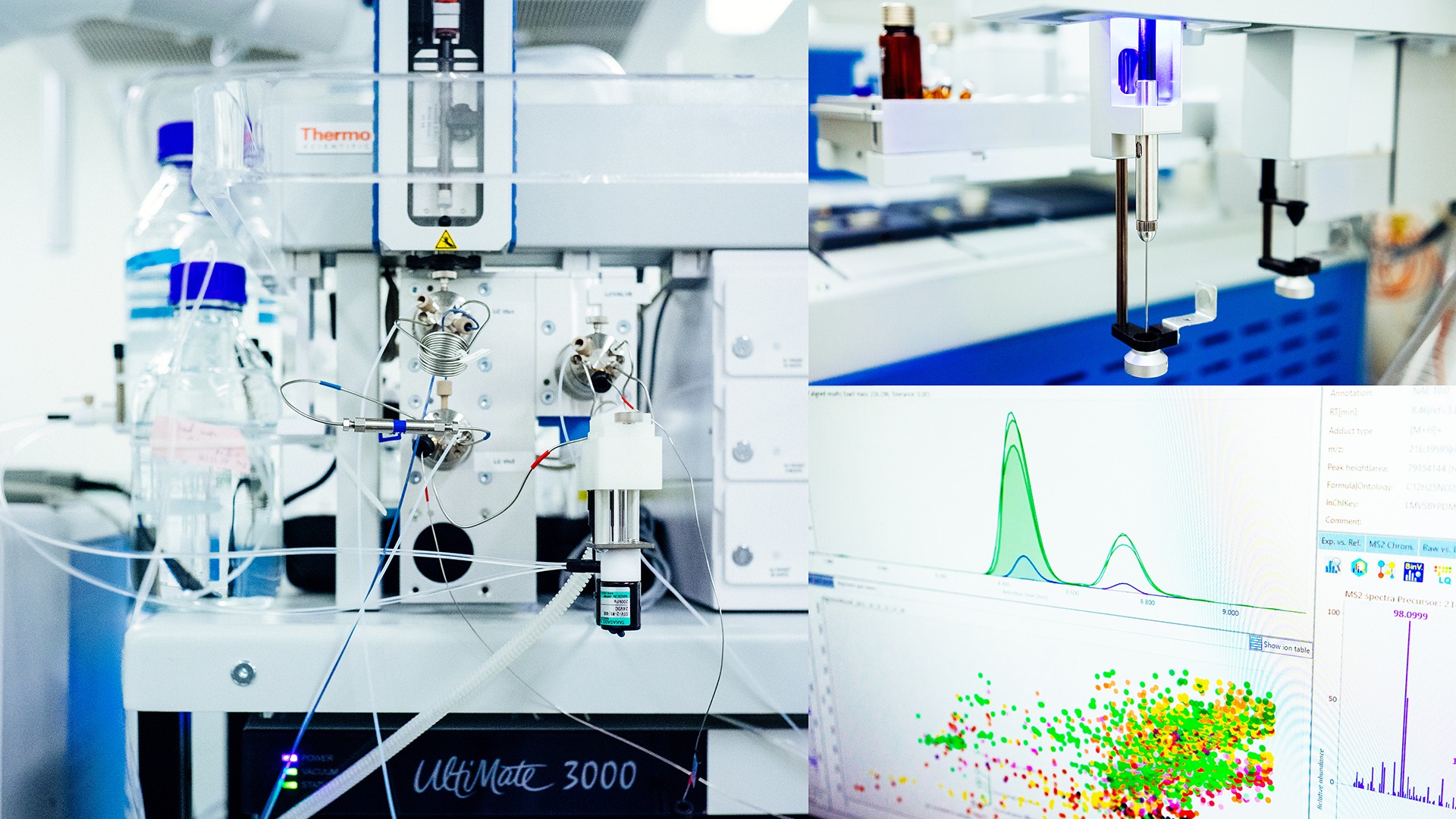Infrastructure update: SciLifeLab Leads the Way with a National Infrastructure for Exposomics
In November 2020, the new Exposomics infrastructure unit was announced by SciLifeLab. Now the unit is up and running, offering exposomics services at Campus Solna. Hosted by Stockholm University, the new national infrastructure for exposomics is unique in Europe and the first infrastructure devoted to providing services in high resolution chemical exposomics to all Swedish researchers. The Exposomics unit operates within the new SciLifeLab Metabolomics Platform together with the Swedish Metabolomics Centre.
“The exposome can be viewed as all environmental exposures that may collectively influence our health. The concept was first proposed by a cancer epidemiologist in 2005 to highlight that genomic factors cannot explain the vast majority of chronic disease, and that new investments in measurement of the exposome should be made to enhance future health studies. The challenge for us as scientists has been to learn how to measure and record the exposome in large prospective health studies, we continue to learn but chemical exposomics techniques are now maturing and in high demand by the research community. Our goal is to increase accessibility of these techniques, and to see these methods leveraged in studies that already incorporate genomics and internal measures of biological response (e.g. metabolomics, transcriptomics, proteomics, epigenomics). In this way, Exposomics opens new windows to observe the interaction of environmental and genomic risk factors which together contribute to disease. This is also why I’m excited to provide exposomics services at SciLifeLab, we are already seeing cross-platform synergies that will benefit our users”, says Jonathan Martin (Stockholm University), Scientific Director of the Exposomics Unit.
“Making comprehensive measurements of the chemical exposome in biofluids, air, water and our food is increasingly accessible with modern high resolution mass spectrometry. The greatest challenge is to combine trace-level sensitivity with broad selectivity” – says Stefano Papazian (Stockholm University), Head of Unit for Exposomics. “Compared to the relatively high concentrations (µm – mM) of endogenous small-molecules that are typically targeted in high resolution metabolomics, here we deal with xenobiotics that are present at a thousand-fold lower concentrations (nM – fM). We must capture a very broad mixture of known pollutants, such as synthetic plasticizers, persistent perfluoroalkyl substances, flame retardants, pharmaceuticals, pesticides, and combustion byproducts. Moreover, of the hundreds of thousands of chemicals in global commerce today, most have never been monitored in human or environmental samples, so there is much ‘molecular dark matter’ to explore by our untargeted methods. This is further uncharted territory we are most interested in”, he continues.
The mission of the Exposomics Unit is to provide efficient high-throughput services at the national and European level for the measurement of chemical pollutants in humans, wildlife, air and water. Samples are processed in a specialized positive pressure clean laboratory to minimize background interference, and state-of-the-art ultrahigh resolution Orbitrap mass spectrometers enable comprehensive coverage of the known chemical-space of the exposome. The other driving philosophy is that the data processing workflows should be achievable with open science tools to fully support data FAIRness, as demanded by the national research audience today.
“We are very happy to welcome the National Facility for Exposomics as an essential part of the new SciLifeLab Metabolomics platform. The complementary expertise in small molecule mass spectrometry will help us reach a deeper understanding of the internal dynamics of xenobiotic exposures that can be integrated to systems biology and biomedicine”, says Anders Nordström (Umeå University), SMC and Metabolomics Platform Director.
For more information and booking of the Exposomics services please contact: Stefano Papazian (stefano.papazian@scilifelab.se).





